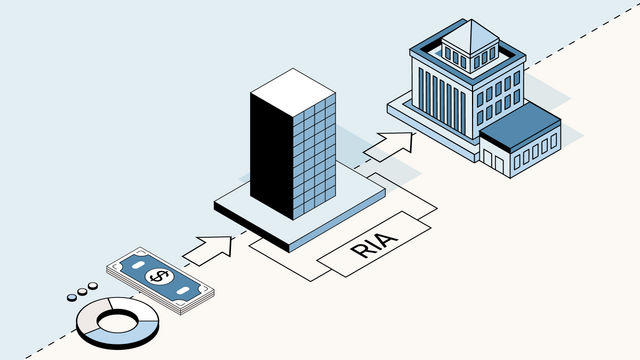What is Regulation D?
Regulation D outlines some of the rules private funds and companies can follow to raise money by selling securities without having to register those securities with the Securities and Exchange Commission (SEC). This type of fundraising is also known as a private placement or an exempt offering.
Learn more: The VC regulatory playbook
Companies and private funds raise investment capital by issuing securities to investors. Ordinarily, sales of securities must be registered with the SEC (for example, when a company goes public via an initial public offering). However, the SEC provides several exemptions to the registration requirement. While the exemptions provided under Regulation D aren’t the only pathways to a securities offering that is not required to be registered, they’re the ones most commonly used by venture-backed startups and VC firms.
Registering securities can be more costly and require more expansive disclosures than a private placement: A registered securities offering requires the issuing company to make the same public filings and reports as any other public company, and to do so on a regular basis (which would be very burdensome for an early-stage company). Exempt offerings under Regulation D provide issuers a more streamlined approach to raising capital.
The volume of capital raised under Regulation D exemptions each year is quite large: Data from the SEC’s Office of the Advocate for Small Business Capital Formation data shows that in from July 1, 2021 to June 30, 2022, Regulation D offerings accounted for more than $2.54T of the approximately $4.45T raised in the private markets. By comparison, registered offerings raised $1.23T that year.
Regulation D exemptions
Rule 506
Rule 506 of Regulation D provides the framework that most private companies and funds use to raise capital by issuing exempt securities, either through Rule 506(b) or 506(c). Issuers (like funds) are able to raise an unlimited amount of capital under both provisions of Rule 506, unlike capped exemptions provided by Rule 504, Regulation A, or Regulation Crowdfunding.
Under 506(b), issuers can’t generally solicit or market fundraising efforts: They’re limited to soliciting through their personal and professional networks instead of placing any public advertisements or otherwise publicly announcing their fundraise. Additionally, investors in a 506(b) offering are able to self-certify their accredited status, which means that issuers aren’t responsible for verifying the investors’ accreditation. (On Carta, LPs in a fund do this as part of the fund closings process.)
Issuers are able to advertise an offering under 506(c), but they must take “reasonable steps” to verify an accredited investor’s status—which can be a burdensome and costly process. For that reason, 506(b) is still the predominant framework used to raise private capital: From July 1, 2020 to June 30, 2021, issuers raised $1.9T under the 506(b) exemption vs. $124B raised under 506(c).
Rule 506 also preempts state-specific securities registration requirements, though issuers may still have to comply with notice and fee filings at the state level.
Rule 504
Rule 504 of Regulation D is used less often than the 506 safe harbors because it has more limitations. Under Rule 504, issuers can only raise up to $10 million during a 12-month period. Some companies are ineligible to use the Rule 504 exemption, including:
-
public companies
-
investment companies
-
companies with no business plan or whose plans are to engage in a merger or acquisition (such as special purpose acquisition companies (SPAC) or blank-check companies).
Unlike Rule 506, Rule 504 does not preempt the securities offering from being registered or qualified with state securities regulators, meaning that issuers still have to comply with state “blue sky” regulations governing securities sales.
Form D
For all three Reg D exemptions—506(b), 506(c), and 504—the company or fund issuing the securities is required to file Form D, which asks for information about the entity raising money and about the size of the sale. The issuer is required to submit Form D to the SEC within 15 days of the first sale or risk being locked out of future Regulation D offerings—or potentially face felony charges if the failure to file was intentional.
Private companies attempting to remain in “stealth mode” will sometimes avoid raising money under Regulation D exemptions because filing the required Form D would publicly disclose the existence of the company and how much money it raised. Instead, they rely on a different exemption, Section 4(a)(2) of the Securities Act of 1933, and complete all of the necessary state blue sky filings.
Disqualifications
All three exemptions provided by Reg D come with bad actor disqualifications that could prevent an investor or startup from raising money. (The Federal Code of Regulations lists the bad actor disqualifications for Rule 506 exemptions, and disqualifications for Rule 504 exemptions are largely the same.) To view examples of a completed Form D, check out the SEC’s EDGAR database, an online archive of filings submitted to the SEC.
Changes to Regulation D
Regulation D isn’t set in stone: Congress and the SEC can act to change the parameters of Regulation D to impact the ways issuers are able to fundraise under the exemption.
In spring of 2022, the SEC added Regulation D and Form D to its regulatory agenda, a sign that the agency may propose changes later in the year. You can stay up to date on Regulation D and other changes to private market investment policy by signing up for the Carta Policy Weekly Brief.



